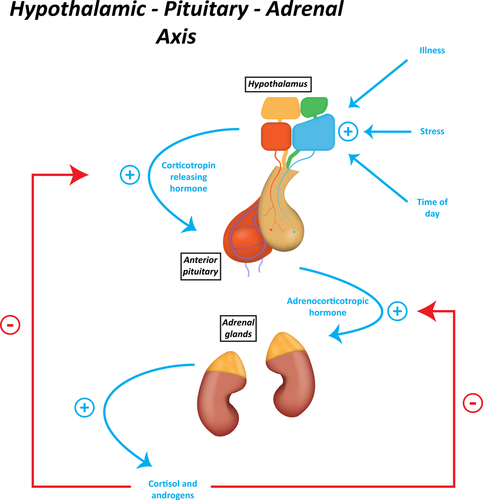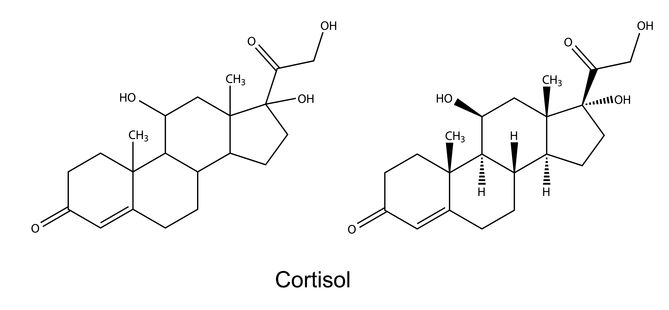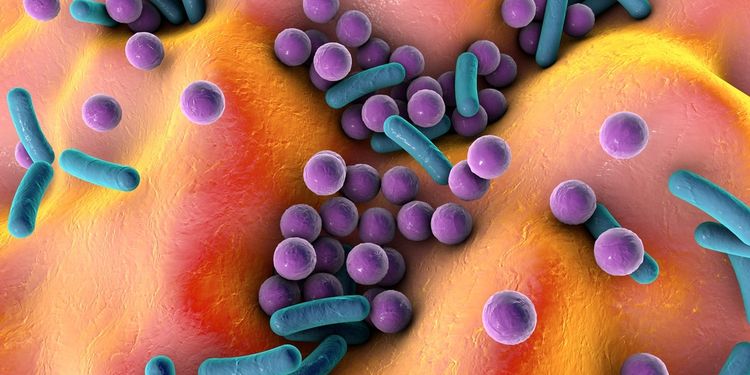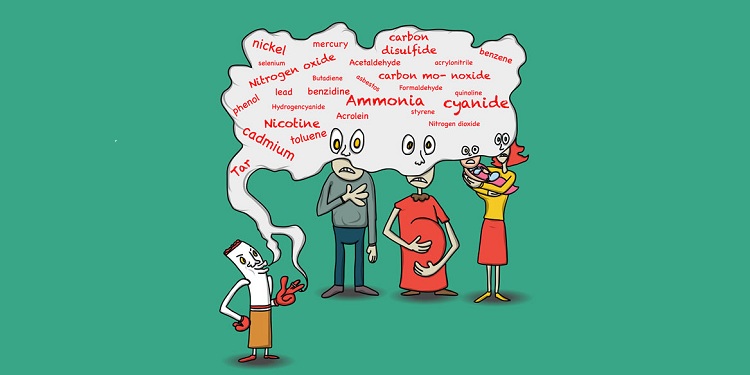Why You Have Chronic Fatigue and How To Beat It

That feeling at the end of a busy day. You’re completely exhausted and can’t wait to go to bed. It’s a normal feeling.
But what if that’s how you operate around the clock?
Well, then you’ve got a problem.
And that’s what chronic fatigue feels like, which you might unfortunately know already.
Chronic fatigue can leave you feeling incapacitated due to pain and exhaustion, and can add varying degrees of difficulty to everyday tasks: working, attending school, exercising, and frankly just flat-out living.
Sadly, because it’s an invisible illness, a lot of people just don’t get it if they don’t suffer from it themselves. They might think you’re exaggerating because there’s no fever, no tumor, no blood work, and no test or tangible way to truly diagnose chronic fatigue—it’s based solely on the person’s descriptions and feelings.
And while there’s also no set medical protocol for treatment, there’s (as always) more than one way to skin this cat.

What Exactly is Chronic Fatigue?
The main characteristic of chronic fatigue, or chronic fatigue syndrome (CFS), is a debilitating and recurrent fatigue that lasts six months or more.
Physical and/or mental activities may worsen symptoms and can last for more than 24 hours after the activity.1
Approximately 5 million people in the United States are believed to have CFS, and of those, more than half may not receive an accurate diagnosis.2,3
Because the symptoms of CFS are common and similar to other illnesses, it can be confused with many other conditions, including Lyme disease, fibromyalgia, and hypothyroidism. Side effects of certain drugs, such as antihistamines and alcohol, can also mimic CFS. CFS affects people of all ages, social classes, and ethnic backgrounds, although it’s more common in women between the ages of 30-50.4
Those who are overweight, inactive, or have depressive or sleep disorders are also more likely to have CFS. Genetic predisposition, allergies, stress and anxiety, poor eating habits, and environmental factors may also increase your risk.

How Does Chronic Fatigue Occur?
Hypothalamic-pituitary-adrenal (HPA) dysfunction is thought to play a role in CFS.5 These three organs work together to regulate your stress response, mood, digestion, immune system, libido, metabolism, and energy levels.
There are many triggers that can initiate a cascade of events, causing the dysfunction. HPA axis dysfunction can result in disordered sleep, hormone deficiency, and autonomic dysfunction.6
There are four main chemicals used in the HPA axis; one is cortocotropin-releasing hormone (CRH), which is secreted by the hypothalamus, signaling the pituitary gland to secrete adrenocorticotropic hormone.
Adrenocorticotropic hormone (ATCH) stimulates the adrenal glands to increase production of the glucocorticoids necessary for regulating metabolic rate, inflammation, and immune response.

Then we have cortisol, which is best known for preparing your body to respond to stress by stimulating norepinephrine to activate your fight-or-flight reaction.5
Together, these hormones work to protect you in times of stress. A healthy adaptation to stress is essential for the maintenance of optimal health and well-being, but when these signals are constantly activated, the system is worked to exhaustion and the HPA axis becomes desensitized, leading to chronic stress on the hypothalamus, pituitary gland, and adrenal glands.5
This is what’s known as HPA axis dysfunction, and it’s associated with adrenal insufficiency, depression, chronic fatigue, fibromyalgia, asthma, and eczema.

Symptoms of Chronic Fatigue
The symptoms of CFS vary from person to person based on the severity of the condition, but the most common symptom is exhaustion that’s severe enough to interfere with your daily activities.
A commonly-used definition for chronic fatigue syndrome was developed at the US Centers for Disease Control and Prevention (CDC). These major criteria include unexplained, persistent, or relapsing fatigue that’s of new onset, isn’t the result of ongoing exertion, isn’t substantially relieved by rest, and hinders occupational, social, or personal activities.7
In addition, at least four of the following symptoms must be present 50% of the time for at least six months:8
- Unrefreshing sleep
- Impaired memory or concentration
- Sore throat
- Tender lymph nodes in neck or armpit areas
- Aching or stiff muscles
- Multi-joint pain
- Headache of new type, pattern, or severity
- Post-exercise malaise or illness feeling which lasts more than 24 hours
Other conditions that commonly occur in people with CFS include fibromyalgia and multiple chemical sensitivity.

Root Causes of Chronic Fatigue
The pathophysiology of chronic fatigue syndrome is unknown, but many experts believe that CFS develops from multiple triggers that can cause a malfunction in the hypothalamic-pituitary-adrenal axis. These triggers might be:
Viral, Parasitic, or Bacterial Infection: Some people develop CFS after having an infection.24 These infections can lie dormant inside the body for years and then emerge under conditions of immune dysfunction, causing a variety of symptoms.
Yeast Overgrowth: Candida albicans (a yeast) is a common inhabitant of a healthy human intestinal tract. However, overgrowth of candida may cause health problems, including CFS-like symptoms, and may be involved in CFS in some individuals.25 People who develop CFS from other triggers can develop internal yeast due to the immune suppression.
Hormonal Imbalance: Menopausal and andropausal individuals are susceptible to developing CFS, especially in stressful situations. Patients with hypothyroidism, low cortisol, adrenal fatigue, and low growth hormone all experience immune dysfunction and are more susceptible to CFS.26,27

Chronic Stress: Spiritually, physically, and emotionally toxic home and work situations can wipe out one’s adrenal function. Because the adrenals are a source of energy, stress can suppress that source of energy.28
Toxins: Dr. Amy Myers states that stressors could include heavy metal toxicity or mycotoxins.37
Poor Diet: Many important vitamins and minerals have a direct effect on fatigue. A diet deficient in these vital nutrients is associated with CFS.29
Mitochondrial Dysfunction: Dysfunction of the mitochondria and mitochondrial enzymes may be associated with chronic fatigue.

Root Cause of Chronic Fatigue: Viral, Parasitic, or Bacterial Infection
Many studies indicate a link between chronic infections and chronic fatigue syndrome.
The hypothalamic-pituitary-adrenal (HPA) axis is activated during many bacterial and viral infections, resulting in an increase in hormone levels.
Some of the symptoms of CFS, including prolonged fatigue, may be due to a hyperactive immune response to an infection or to a post-infection sequelae that alters the immune system.30
Viral and bacterial infections that have been implicated in CFS include the Epstein-Barr virus (mononucleosis), human herpesvirus 6, and enterovirus, a type of virus that enters through the gastrointestinal tract.31

Other possible infection sources are:
Mycoplasma: The cause of atypical pneumonia
Bornaviruses: Cause borna disease, an infectious neurological syndrome
Ross River Virus: A mosquito-borne tropical disease
Coxiella Burnetti: The agent that causes Q fever
Parasites are another class of disease-causing organisms that aren’t viruses, bacteria, or fungi. There are four primarily involved in CFS: Giardia lamblia (giardiasis), Entamoeba histolytica (amoebiasis), Ascaris lumbricoidesor roundworm (ascariasis), and Toxoplasma gondii (toxoplasmosis). Giardiasis and amoebiasis are the two most often involved in CFS.32

Root Cause of Chronic Fatigue: Yeast Overgrowth
Some species of fungi are potentially pathogenic in humans, but candida (Candida albicans) is the organism responsible for most fungal infections.33
Candida is a yeast found in the gastrointestinal tract that’s usually harmless. However, when the normal balance of good bacteria in the colon is disturbed, the yeast may quickly proliferate and change the balance in its favor.
Antibiotic use, some steroids, birth control pills, a low-fiber diet, and a diet high in refined sugars can contribute to yeast overgrowth.
Dr. Amy Myers explains the process of candida overgrowth as “breaking down the wall of the intestines and penetrating the bloodstream, releasing toxic byproducts into your body causing a host of unpleasant symptoms such as brain fog, fatigue, digestive issues, and pain.”34
Fungi, like viral, bacterial, and parasitic infections, activates the HPA axis and can weaken the immune system. When there’s a dominance of yeast in the gut, it provokes an immune response that in turn stimulates cortisol production.33
Signs of candida overgrowth include skin and nail fungal infections, digestive issues, poor memory, skin issues, difficulty concentrating, and chronic fatigue.

Root Cause of Chronic Fatigue: Hormone Imbalance
People who have chronic fatigue syndrome also sometimes experience abnormal blood levels of hormones produced in the hypothalamus, pituitary glands, or adrenal glands.
Imbalanced thyroid hormone, low adrenal function (low cortisol), and low estrogen or testosterone are associated with chronic fatigue syndrome.
Thyroid Function: Many people with CFS have difficulty in converting thyroxine (T4), which is fairly inactive, to triiodothyronine (T3), the active hormone. Symptoms of an underactive thyroid, known as hypothyroid, include fatigue, poor memory and concentration, aches and pains, and susceptibility to viral infections.
Adrenal Insufficiency: During adrenal fatigue, the adrenal glands do continue to function and produce their signature hormone cortisol, but not well enough to maintain optimal homeostasis.
Cortisol is an adrenal hormone essential for the maintenance of homeostasis, modulating many changes that occur in the body in response to stress. Adrenal dysfunction can cause reduced cortisol levels and thus results in blood sugar imbalances, lowered immune function, brain fog, inflammation, low blood pressure, and fatigue.
Stress plays a key role by suppressing immunity and HPA function.24

Estrogen is the major female hormone, and it not only affects neurotransmitter production and activity but also has a neuroprotective effect on central nervous system functioning.
In perimenopause and menopause, most women will experience lower estrogen levels. Lower levels can trigger some of the same symptoms as CFS, including poor sleep, brain fog, achiness, and fatigue.
Estrogen-triggered dysregulation of the HPA axis may play a role in the development of CFS.35
Testosterone is important for both men and women. Aside from its role in sexuality, testosterone is also responsible for maintaining muscles and bone integrity and is important for cardiovascular health.
Like estrogen, testosterone levels diminish as we age. Some medications, such as birth control pills, chemotherapy, and antidepressants, can also impede the body’s ability to use testosterone. Low testosterone is associated with decreased libido, osteoporosis, muscle wasting, high cholesterol, and chronic fatigue.35

Root Cause of Chronic Fatigue: Chronic Stress
Perhaps this comes as no surprise, but chronic stress has been connected to chronic fatigue syndrome.36
Stress is your body’s way of responding to any kind of demand, and it can be short-term (acute) or long-term (chronic).
Stress can be real or perceived, and it may be physical (exercise, lack of sleep), mental (worry, anxiety), emotional (anger, fear), nutritional (food allergies, nutrient deficiencies), traumatic (injury, illness), or psycho-spiritual (troubled relationships, finances, career).
All stressors can alter the activity of the HPA axis, which controls important functions such as sleep, stress response, and depression.
When a stressor enters your body, the hypothalamus releases corticotrophin-releasing hormone, which stimulates the pituitary glands’ adrenocorticotropic production, which then prompts your adrenals to pump out cortisol.36

Cortisol’s main role is in releasing glucose (that is, energy) into the bloodstream in order to facilitate the “fight or flight” response. It also suppresses and modulates the immune system, digestive system, and reproductive system so your body can focus on immediate survival.37
These hormonal reactions continue until they reach the level your body needs, then they shut off. However, chronic stress can deplete your body’s energy and lead to exhaustion due to the suppression of the HPA axis in the brain, causing fatigue, headaches, depression, sleep problems, pain, and digestive problems.36
According to Dr. Amy Myers, stress can also trigger viral infections that might be lying dormant in your body.37

Root Cause of Chronic Fatigue: Poor Diet
People with chronic fatigue syndrome are often deficient in several vitamins and minerals, including B vitamins, vitamin C, magnesium, zinc, L-tryptophan, L-carnitine, coenzyme Q10, and essential fatty acids.38
Modern diets are typically high in refined carbs, salt, and saturated fat but low in complex carbohydrates and fresh fruits and vegetables.
This dietary pattern can produce chronic deficiencies in several micronutrients (B vitamins, magnesium, iron, and zinc, to name a few), which are important for maintaining energy and fighting fatigue.
Unhealthy dietary patterns may increase HPA activity and trigger an overactive response. Studies have found a correlation between and diet low in fiber and high in calories, sugar, and fat and HPA axis disruption.39
Nutritional deficiencies can also occur because of infections in the gastrointestinal tract that can result in poor absorption of nutrients. During periods of increased stress, the requirement for these micronutrients is higher.

Root Cause of Chronic Fatigue: Toxicity
Chronic fatigue may be a result of toxin exposure. Toxins can disrupt muscle metabolism, which may explain the muscle pain and fatigue involved in CFS. Toxins can include tobacco smoke, chemicals, and pollutants.
Tobacco smoke in particular contains a host of toxins, including carbon monoxide and nicotine, which can cause fatigue, damage the nervous system, and increase risk of chronic pain.40
Exposure to cigarette smoke, even secondhand, introduces free radicals into your body, putting you at risk for oxidative stress that decreases antioxidants, suppresses the immune response, and activates the HPA axis, increasing your risk for CFS.41
Exposure to heavy metals (including mercury and lead) has also been linked to CFS-like symptoms.42 Heavy metal toxicity can affect the nervous system, gastrointestinal system, cardiovascular system, reproductive system, and kidneys.
Mycotoxin levels, or mold exposure, has been linked to asthma, sinus problems, chronic fatigue, and significantly reduced levels of hormones essential for energy production, such as growth hormone and thyroid hormones.43

Root Cause of Chronic Fatigue: Mitochondrial Dysfunction
Nearly every cell in the human body contains mitochondria. Mitochondria are organelles within cells that serve as batteries, supplying energy to the cells that can be used for a variety of jobs, from muscle contraction to hormone production.
When mitochondria fail, it results in poor energy supply, causing the cells to slow down because they don’t have the energy supply needed to function. This in turn causes all bodily systems to slow.44
Mitochondrial dysfunction damages the cells in the brain, heart, liver, muscles, kidney, and the endocrine and respiratory systems. Depending on which cells are affected, symptoms can include loss of motor control, muscle weakness and pain, gastrointestinal disorders, poor growth, cardiac disease, liver disease, diabetes, respiratory complications, and susceptibility to infection.45
Mitochondrial dysfunction can be inherited or acquired due to adverse effects from drugs, infections, or environmental causes. It has been shown to be associated with CFS, leading to disordered sleep, hormonal imbalances, and autonomic dysfunctions.46 Damage to mitochondria can have widespread consequences.

Natural Relief from Chronic Fatigue
There are several dietary and lifestyle considerations that can help chronic fatigue syndrome, including:
Magnesium: Magnesium plays a central role in mitochondrial health, by producing energy reactions in the cells. A deficiency may be linked to chronic fatigue.9
B Vitamins: B-complex vitamins such as B1 (thiamine), B2 (riboflavin), and B6 (pyridoxine) play a critical role in many energy-producing reactions in the body, while other B vitamins, such as folate and B12 (methylcobalamin) are important in creating new cells and repairing damaged ones.10
Zinc: Zinc is a mineral that supports the immune system, protects against oxidative damage, and reduces pain and fatigue.11 Lower zinc levels are associated with people who have CFS, which is correlated with markers of inflammation and immune activation.12
Vitamin C: Vitamin C is the body’s primary water-soluble antioxidant. Supplementing with vitamin C can help improve immune function, decrease inflammation, and improve blood circulation.13

Vitamin D: Current research indicates that vitamin D deficiency plays a role in a large number of illnesses, including CFS.14 It has also been found that, among people with CFS, low vitamin D levels correlate with markers of increased cardiovascular risk, inflammation, and oxidative stress.15
Omega-3 Fatty Acids: Fatty acids such as docosahexaenoic acid (DHA) and eicosapentaenoic acid (EPA), which are found in high quantities in seafood and pastured egg yolks, have been found to effectively alleviate oxidative stress and reduce inflammation associated with CFS.16
Amino Acids: Amino acid deficiencies may be linked to CFS. A large portion of our cells, muscles, and tissue are made up of amino acids. They’re the building blocks of the protein involved in energy production. Failure to obtain all the essential amino acids can result in degradation of body proteins. Supplementing with amino acids has been connected with a reduction in pain and fatigue.17
Coenzyme Q10 (CoQ10): CoQ10, a nutrient with potent antioxidant properties, is a vital component in the production of ATP in the mitochondria.18 People with CFS tend to have blood CoQ10 levels below normal and thus more problems with fatigue, concentration, and memory.18 Studies show improvement of fatigue, pain, and tenderness with CoQ10 supplementation.19

Adaptogenic herbs help increase the body’s overall resistance to mental and physical stress. They enable your body to physiologically adapt to problems before it fizzles out.20
Dr. Aviva Romm refers to adaptogens as the “kings and queens” of herbal medicines for restoring health, vitality, immunity, and stamina.21 Some adaptogenic herbs reputed for boosting energy and supporting healthy immune function include:
Ginseng: Panax ginseng is thought to reduce fatigue and oxidative stress while improving mental function.22
Rhodiola: Rhodiola rosea has shown to increase energy production and may help improve cognitive function.20 Dr. Romm claims it improves sleep, boosts the immune system, and reduces stress and inflammation.21
Ashwagandha: Withania somnifera is considered a useful and restorative adaptogen for improving energy, memory and learning, and sleep, as well as reducing inflammation and oxidative stress.20,23
In addition to dietary considerations, it’s important to engage in healthy sleep hygiene, ideally sleeping eight hours a night, and stress-reduction exercises such as yoga or meditation, all of which will help aid in relief of symptoms associated with CFS.
